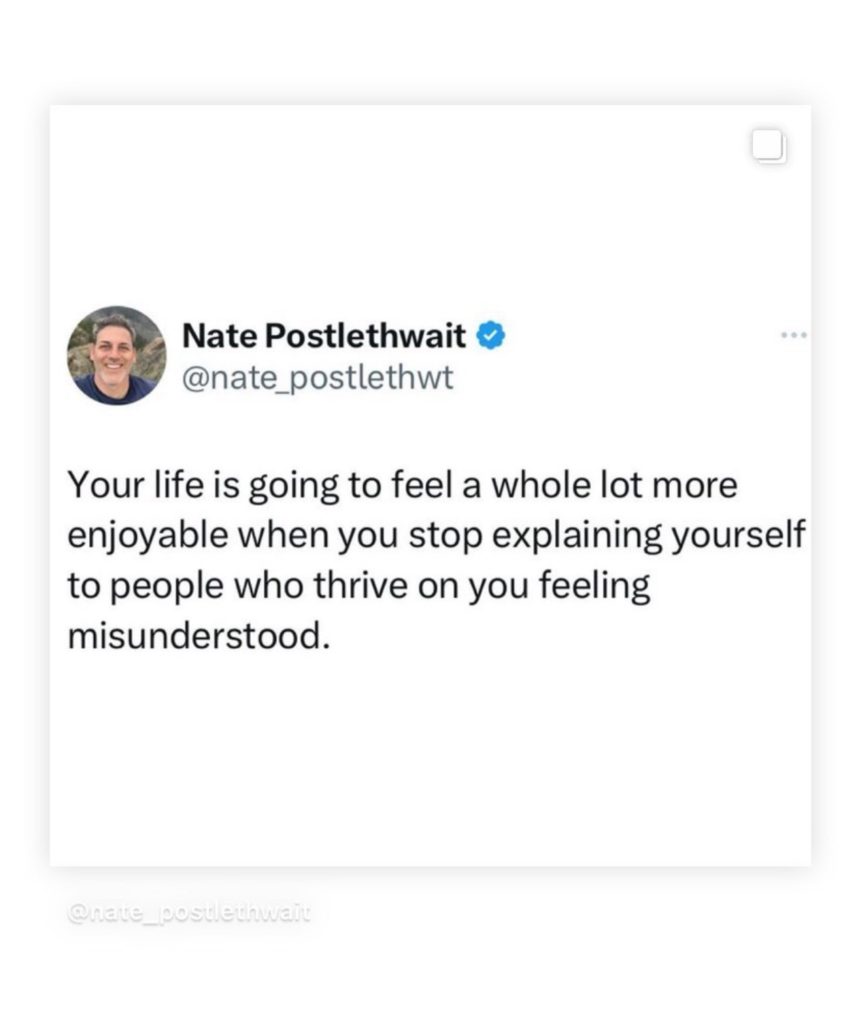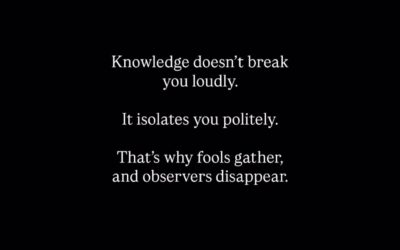For a long time, I believed that speaking my truth was only the beginning of a process—one that involved not just articulating my feelings and beliefs, but also making sure that the person on the receiving end understood me. I would chase that understanding, seeking validation, and often finding myself emotionally exhausted in the process. What I have come to realize is that this chase, this pursuit of validation, wasn’t just about being understood; it was about care. I wanted to help the other person see my perspective, to bridge the gap between us. But in that pursuit, I lost sight of an important truth: my responsibility begins and ends with speaking my truth. How it is received, or whether it is understood, is out of my hands.
We live in a world where communication is often transactional. We say something, and we expect a response. If that response doesn’t align with our expectations, it can feel like a failure, like our truth wasn’t heard. But I’ve learned that speaking your truth isn’t about eliciting a particular response. It’s about honoring yourself—your experiences, your emotions, and your needs—without attaching strings to how others react.
When we speak our truth, there are only three potential responses: fight, flight, or acceptance. Some people may become defensive, feeling attacked or threatened by your honesty. Others might withdraw, unable or unwilling to engage with what you’ve shared. And then there are those who will stand in your truth with you, acknowledging it even if they don’t fully understand it.
I’ve learned that my responsibility ends with the truth I speak. If the other person fights, runs, or even just stands in stunned silence, that’s not something I can control. And more importantly, it’s not my job to chase them down, to convince them of my perspective, or to seek their validation. The chase, I’ve discovered, was never really about them. It was about me—about my need to be seen, to be heard, to be understood. But this chase is exhausting, emotionally draining, and ultimately unfulfilling.
As I continue to heal, I see more clearly that the energy spent on chasing could be better used in nurturing my own growth. The emotional exhaustion I once felt came from placing too much importance on the reactions of others and too little on the peace that comes from simply standing in my truth.
I now understand that my truth is mine alone. It’s not a tool to manipulate, convince, or coerce others into seeing the world as I do. It’s a declaration of who I am, and that’s enough. If others can’t accept it, if they run from it or fight against it, then that’s their journey, not mine. It’s not my responsibility to manage their reactions or to make them comfortable with my truth.
The power of speaking your truth lies in the freedom it brings. When you let go of the need for others to validate or understand you, you release yourself from the exhausting chase. You step into a space where your only obligation is to yourself—to be honest, to be clear, and to be true. How others respond to that truth is out of your control, and that’s perfectly okay.
So, speak your truth and let it stand on its own. Respect the power it holds and the freedom it brings. Let go of the chase, and you will find that the peace you were seeking through validation is already within you, waiting to be embraced.





0 Comments